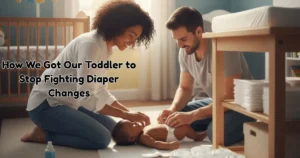Taking care of kids’ allergies can be hard, but it’s necessary to make sure they’re comfortable and healthy. Pollen, pet dander, certain foods, and dust mites are just a few of the things that can cause allergies. Symptoms can range from mild discomfort to severe reactions. This article tells you everything you need to know about how to effectively manage allergies in children, including how to find triggers, treat allergies, and keep allergies from happening.
How to Help Kids With Allergies
Allergies happen when the immune system reacts too strongly to certain substances, which are called allergens. Pollen, mould, dust mites, pet dander, some foods, and insect stings are all common allergens in kids. Allergy symptoms are very different and can include sneezing, a runny nose, itchy eyes, hives, stomach pain, or trouble breathing.
How to Find Allergens
The first thing you need to do to help your child with allergies is to figure out what makes them react. Keeping a detailed log of possible triggers and keeping track of when and where symptoms happen are common ways to do this. Talk to an allergist or paediatrician for a more accurate diagnosis. They can do tests to find specific allergens.
Different types of treatment Medicines
Many parents give their kids medicine to help with their allergy symptoms. They can be broken down into several groups:
- Antihistamines: These drugs stop histamines from working, which are chemicals that are released during an allergic reaction and cause symptoms like sneezing, runny nose, and itching. Children are often given over-the-counter medicines like cetirizine (Zyrtec) and loratadine (Claritin). Before starting any medication, you should always talk to a doctor or nurse.
- Corticosteroids for the nose: These work to reduce swelling in the nasal passages. They help a lot with controlling the symptoms of allergic rhinitis. Fluticasone (Flonase) and mometasone (Nasonex) are two common examples.
- Decongestants: These drugs help clear up stuffy noses. However, because they might cause side effects, they should only be used for a short time. Get advice from a doctor or nurse to find out if decongestants are safe for your child.
LRAs (montelukast, sold under the brand name Singulair) are medicines that stop substances that cause allergic inflammation. Most of the time, they are used with other allergy medicines.
Immunotherapy shots for allergies
Immunotherapy (allergy shots) may be an option for kids who have severe allergies or who don’t do well with medicines. For this treatment, small amounts of allergens are injected into the body on a regular basis to make the immune system less sensitive over time. Some illnesses, like allergic rhinitis and allergic asthma, can be helped by immunotherapy.
Medicines for emergencies
Carrying an epinephrine auto-injector is very important for kids who have had severe allergic reactions (anaphylaxis) in the past. To stop the effects of anaphylaxis, this device can quickly give epinephrine. Make sure that your child, their caretakers, and teachers know how to use it.
Keeping Triggers Away
One of the best ways to deal with allergies is to stay away from things that cause them. For common allergens, here are some things you can do:
- Pollen: Use air purifiers and keep windows closed when pollen counts are high. After playing outside, tell your kid to wash their face and hands.
- Pet Dander: Vacuum and clean the house often, wash your pets often and don’t let them sleep in the bedrooms.
- Dust Mites: Cover pillows and mattresses with allergen-proof material and wash your bedding often in hot water. Keep the humidity level in the house low.
If your child has a food allergy, read the labels carefully and teach them to stay away from certain foods. Have a plan for what to do if someone with a food allergy is accidentally exposed to it.
Making the World a Healthier Place
For people with allergies, keeping their environment clean and free of allergens is very important. Symptoms can be greatly reduced by cleaning regularly, making sure there is enough air flow, and limiting exposure to things that might cause them.
How to Teach Your Child
It’s important to teach your child about allergies, especially as they get older. Make sure they know what allergens to stay away from, how to spot early symptoms, and when to get help. Your child can take an active role in managing their condition if you teach them.
Watching and following up
For allergy management to work well, it’s important to keep up with a healthcare provider. Periodic evaluations can help figure out what changes need to be made to treatment plans based on how well they are working. Keeping an eye on symptoms and medication use can help you figure out how to best treat the condition.
Food Matters to Think About
When planning and making meals for kids with food allergies, extra care needs to be taken. You might want to work with a dietitian to make sure that your child’s diet is healthy, balanced, and free of allergens. When you go out to eat, be careful and let the staff know if you have any food allergies.
Doing physical things
Promoting physical activity is good for your health in general, but it’s also important to deal with allergies that are caused by exercise, like asthma. Make sure your child has the right medicines and takes the right safety measures before playing outside.
Help with emotions
Kids who have allergies can find it hard to live their lives, especially when they have to stay away from certain foods or activities. It’s very important to offer emotional support and understanding. Help them talk about their feelings and worries in an open way, and if they need it, help them find counsellors or support groups.
Conclusion
For kids with allergies, taking care of them requires a complete plan that includes finding the allergens, using the right treatments, and taking precautions. You can help your child with their allergies and improve their quality of life by working closely with their doctors, educating them, and making any necessary changes to their lifestyle. Your child’s allergy management plan will stay effective and up-to-date as long as you keep in touch with doctors and nurses and do regular follow-ups.



